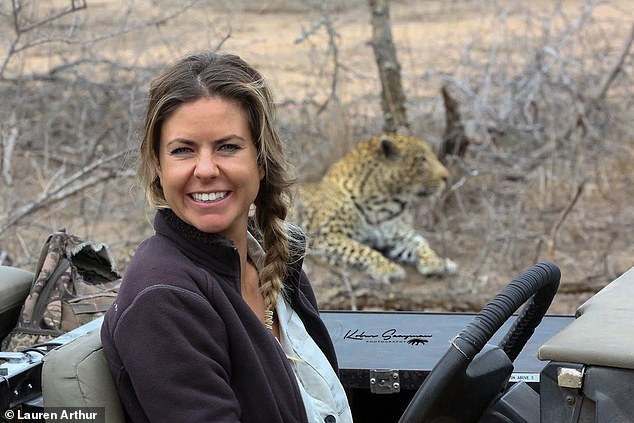Marine biologist explains why she got into conservation and why other women should join
A marine biologist and conservationist has called out the sexism she’s experienced in the industry as she urges more women to take on jobs to help save the planet.
Lauren Arthur, 34, was born in Edinburgh but lives and works at South Africa’s Greater Kruger National Park, where she runs virtual safaris to educate viewers around the world on the wildlife she encounters.
Lauren’s work has taken her around the world, from the Maldives to Mexico, and led to her being her chosen as an ambassador for the WWF Voices campaign for bio-diversity, but says there are still some people who underestimate her.
‘I’m a petite female, I have dyed blond hair and there are a lot of men that don’t intentionally mean it, but look at you and don’t immediately think of “strength”,’ she said.
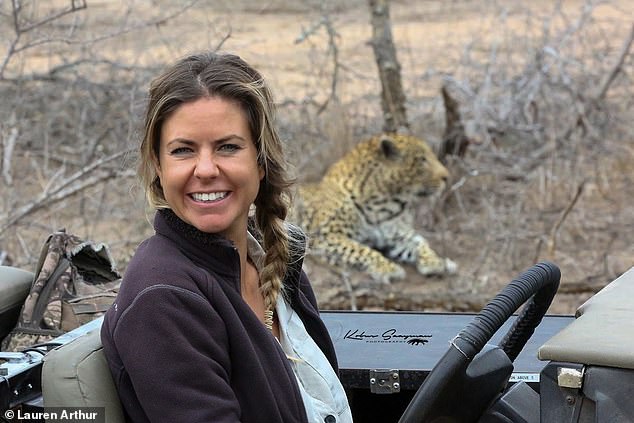
Lauren Arthur, 34, was born in Edinburgh but now lives and works in South Africa in the Greater Kruger National Park, taking thousands of viewers on virtual safaris twice a day and educating them from the field about the animals she encounters. She explained why women working in conservation felt they needed to go the extra mile to prove themselves
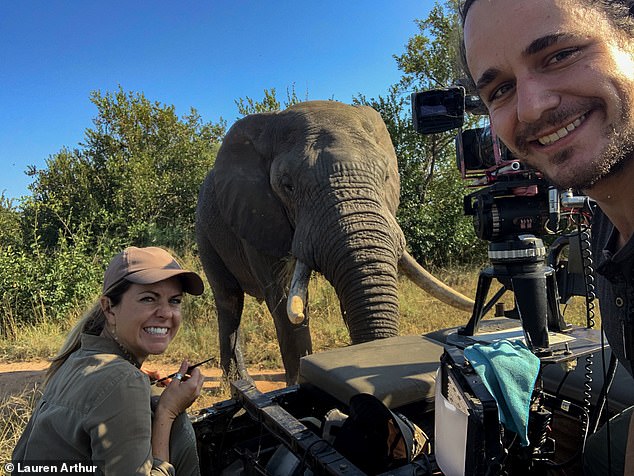
Day-to-day, Lauren works as a naturalist presenter for the international WildEarth (pictured), broadcasting about wild animals and conservation efforts around the glob twice a day
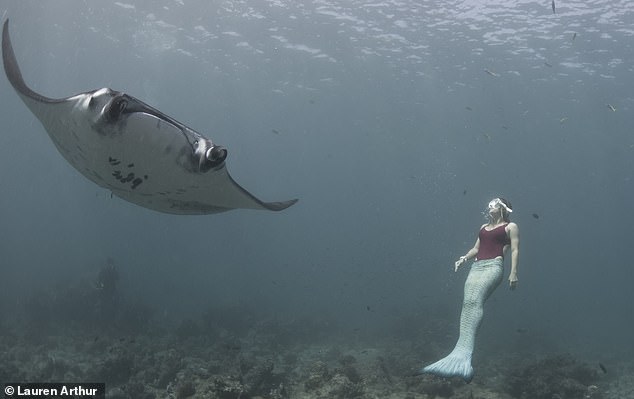
Swimming with the manta rays. Lauren recounted how she once risked her life deep-diving to save a menta ray that was tangled in a fishing net in Maldives
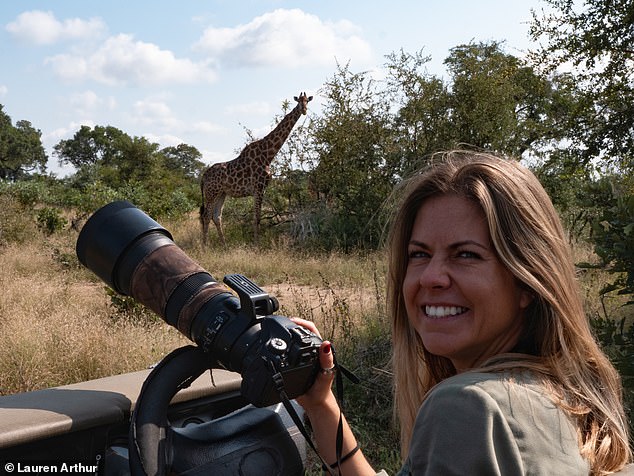
Lauren, with giraffes in South Africa, said more incredible women should join the fight for conservation, and should not be put off by the fact that is it a male-dominated industry
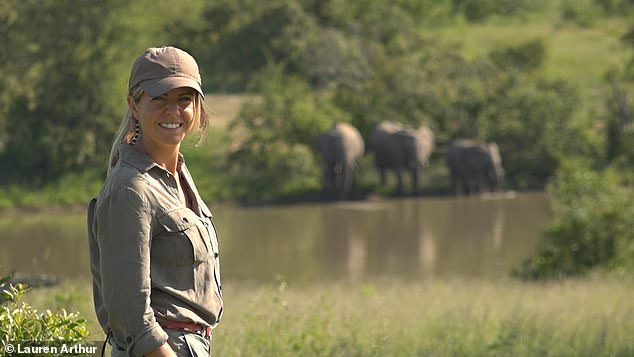
Lauren, pictured with an herd of elephants, said that because she is petite and blonde, men sometimes think she cannot handle the physical aspects of her job
‘They’re mansplaining things slightly,’ she went on, ‘they have no belief that you can change a tyre, or they think that we don’t know mechanics of a car, don’t know “men things”,’ she said.
‘I just think even in the diving industry a lot of men will just assume that petite women won’t be as strong or be able to do to all the technical things men do.
‘Women in this industry have to go a bit further to prove themselves and it shouldn’t be like that. It is a risky job, you’re putting yourself out there with wild animals, there’s a training course.
‘I just think that in general, and this is a huge generalisation, women do a have to go that extra mile in order to earn people’s respect, and to say “I can do it. I can drive fast, rush after
an animal, repair things, change a tire”.’
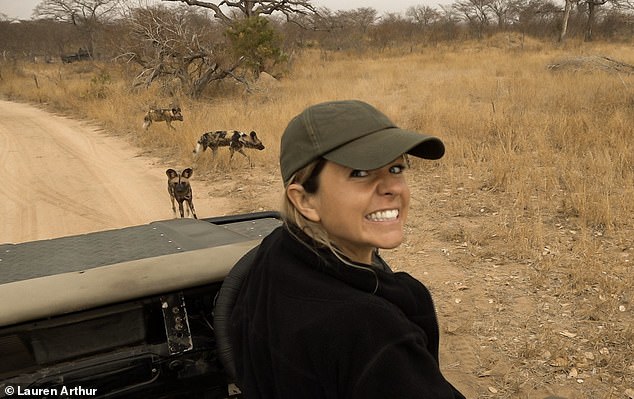
With African wild dogs. The marine biologist is currently working on land to educate others about conservation
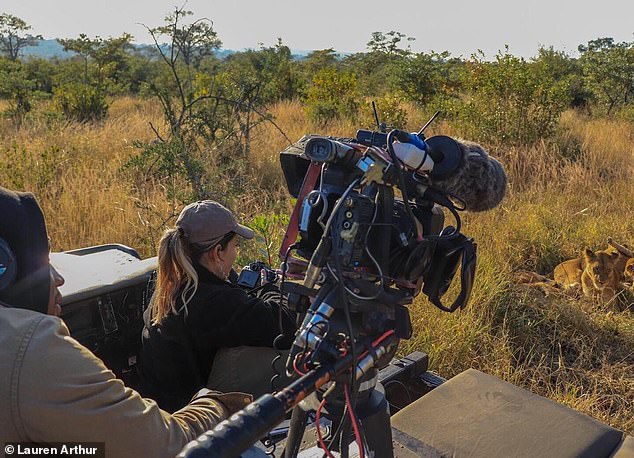
While she only earns about £1,000 a month for her job as a presenter, Lauren said she did not mind because she felt she was making a change. Pictured, filming in the safari park
Reflecting on why there aren’t more women working in conservation, she said: ‘I don’t know whether women are intimated, I can’t pinpoint the reason for you, but there are incredible women out there that should also be inspired to get involved.
‘I feel we need more women, I took that leap and it was scary and here I am, sometimes I’m sponsored by National Geographic or WWF.
‘I think it’s really important, we’re at a turning point in the world. I don’t earn much money but I’m doing it because I’m making a difference and I want to inspire other women.’
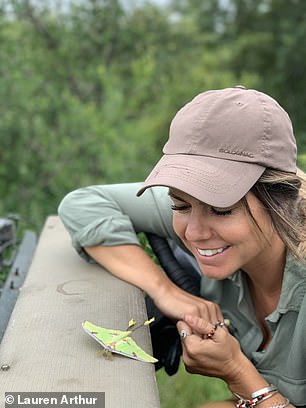
Lauren with a Luna Moth in South Africa
Lauren revealed she once dived without equipment in order to free a manta ray that had become caught in a net in the Maldives.
‘She had a hook in her gills, and the net line was going round and round her body,’ Lauren said. ‘She was deep so, I tried and dived. I knew it was risky but compassion said I had to help her. I had no equipment, no tank, so you just hold your breath.’
After letting herself sink to reach the manta ray, Lauren had to be careful while she untangled the animal, but said the turtle was ‘cooperating.’
‘She let me untangle her, she was cooperating, I think she knew I was trying to help,’ she said.
Lauren recounted how she was left without any air left after she freed the poor ray and grew scared she would blackout in the water.
‘Some people would call it foolish,’ she admitted, adding she just had to do it, and that she had kept the fishing line as a souvenir.
On another occasion, she said that she had learned to give turtles CPR in the Maldives when working for an organisation that protects the sea turtle population in the area.
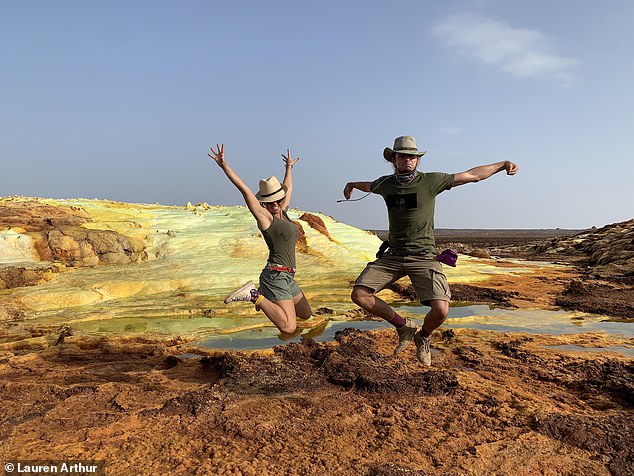
Lauren and her partner David having some fun while their mini-series on Ethiopian wolves for the World Wildlife Fund
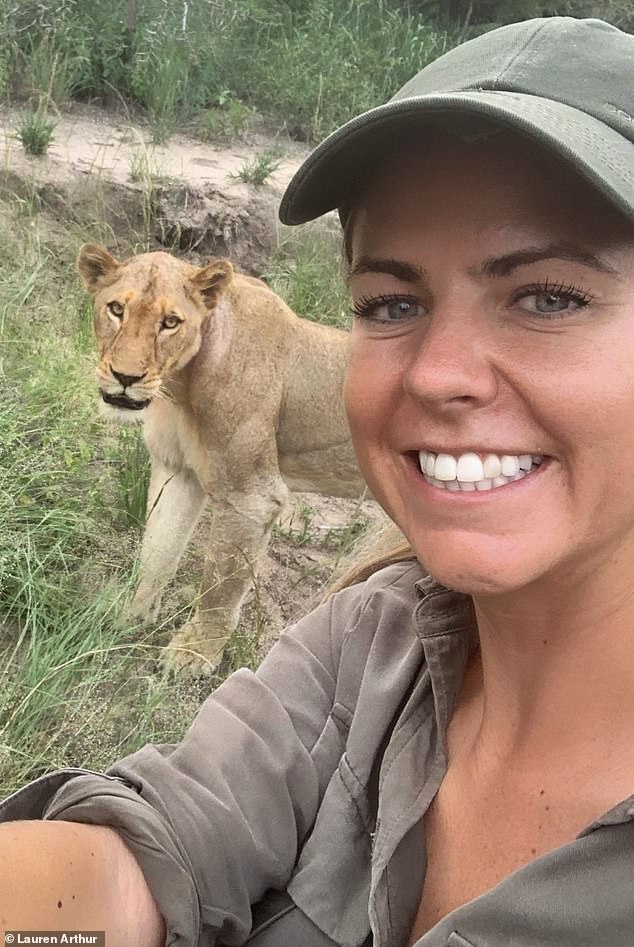
Lauren said she wanted to show people that big cats and fluffy pandas were not the only animals worthy of attention
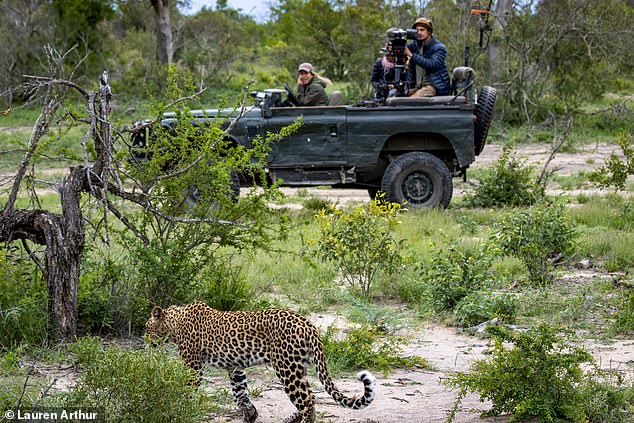
Filming leopards in South Africa. Lauren has countless stories of rushing to an animal’s help on the job
On top of her safari work in South Africa, Lauren has travelled to Ethiopia where she filmed a mini series with her partner David, a cameraman.
The couple are both ambassadors for the WWF Voices programme which is run by Sir David Attenborough.
The mini series, called Too Wild will soon be broadcast on the WWF website and searches for the elusive Ethiopian wolf.
Lauren said she and David hoped to bring attention to lesser known animals which also need help and care.
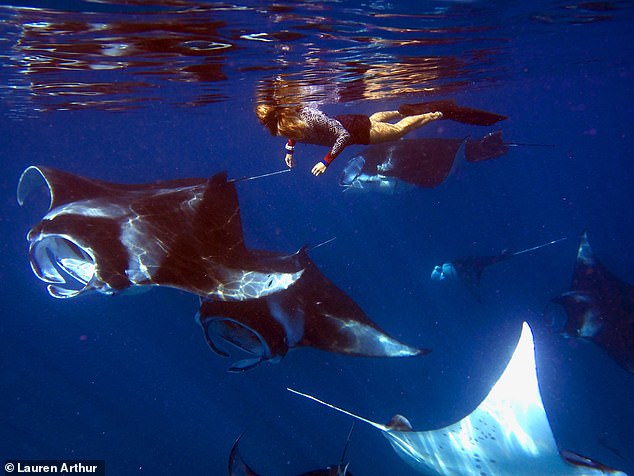
Mantas rays and Lauren in the Maldives. She once dived without equipment to save a manta ray
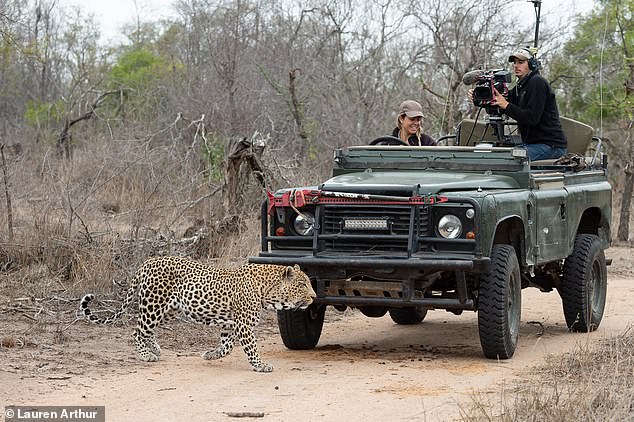
Leopards in South Africa. Lauren said she hoped to inspire other women to join a career in conservation

